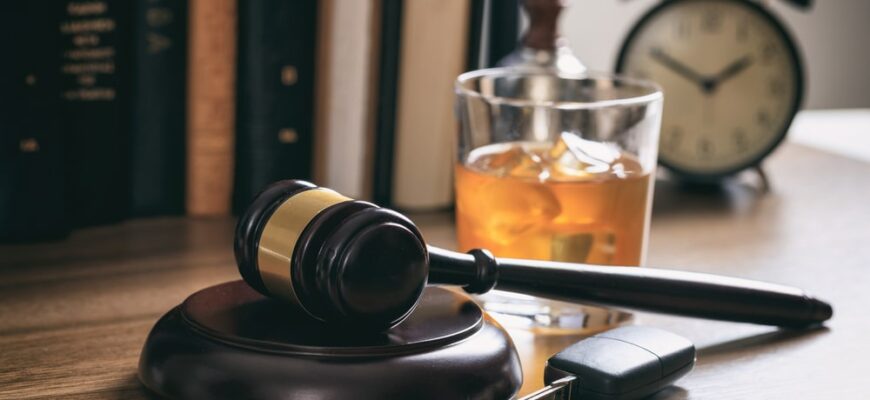The Impact Of Bankruptcy On Your Retirement Accounts

Filing for bankruptcy can be a significant financial decision, often driven by overwhelming debt and financial distress. One of the concerns many people have when considering bankruptcy is how it will affect their retirement accounts. Understanding the impact of bankruptcy on your retirement savings is crucial to making informed decisions and planning for your future.
Our friends from Eric Lindh Foster Law, LLC, explain how bankruptcy can affect your retirement and encourage you to seek personalized legal advice before filing Chapter 7 or Chapter 13 bankruptcy. They believe, as do we, that understanding all the ramifications of bankruptcy can help you make the right decisions for yourself and your financial goals.
Bankruptcy Protections For Retirement Accounts
One of the key aspects of bankruptcy law is the protection it provides for certain types of retirement accounts. Under the Bankruptcy Code, most retirement accounts, such as 401(k)s, IRAs, and pensions, are generally protected from creditors and are not subject to liquidation in bankruptcy proceedings. This means that, in most cases, you can keep your retirement savings intact when you file for bankruptcy.
In Chapter 7 bankruptcy, which involves the liquidation of non-exempt assets to pay off creditors, retirement accounts are often protected under federal and state exemptions. For example, 401(k) plans, 403(b) plans, and pension plans are usually exempt from being seized by bankruptcy trustees. Similarly, IRAs have protection limits set by federal law. As of 2024, traditional and Roth IRAs are protected up to a certain amount (adjusted for inflation) from creditors, though amounts exceeding this limit may be at risk.
Contributions To Retirement Accounts
While retirement accounts are generally protected during bankruptcy, there are limits on contributions made shortly before filing. If you make significant contributions to retirement accounts shortly before filing for bankruptcy, these contributions might be scrutinized. Creditors could argue that these funds were transferred to avoid paying debts, potentially leading to challenges in the bankruptcy process.
If you have taken a loan against your retirement account, the impact of bankruptcy can vary. Generally, the outstanding balance of a retirement account loan is treated as an unsecured debt in bankruptcy. However, if the loan is not repaid, the amount owed could be deducted from your retirement account balance or treated as taxable income, depending on the terms of your plan and the bankruptcy proceedings.
Post-Bankruptcy Considerations
After bankruptcy, it’s crucial to plan for rebuilding your financial stability and securing your retirement future. While bankruptcy can offer relief from debt, it’s an opportunity to reassess your financial strategy, including your retirement savings plan. Consider consulting a financial advisor to help you navigate the post-bankruptcy landscape and ensure that you’re making the most of your retirement savings moving forward.
While bankruptcy can offer a fresh start by addressing overwhelming debt, it generally has minimal impact on your retirement accounts due to federal protections and exemptions. However, it’s important to be aware of the specific details of your retirement accounts, how recent contributions might be viewed, and the treatment of any loans taken against your retirement savings. Consulting with a bankruptcy lawyer, one who has a clear picture of your unique financial situation and challenges, can help ensure that you understand the implications and make informed decisions to protect your financial future.
The Role Of An Assault Lawyer

In a society where conflicts can escalate into physical altercations, the presence of an assault lawyer becomes essential. An assault lawyer is a legal professional specializing in cases involving acts of violence or threats of harm against individuals. Their role extends beyond legal representation; they serve as advocates for their clients, working to protect their rights and ensure that justice is served.
The responsibilities of an assault lawyer are multifaceted, encompassing various tasks aimed at advocating for their clients’ interests. From the moment a client seeks their assistance, these lawyers embark on a journey to provide support, guidance, and expert legal representation.
One of the primary duties of an assault lawyer is to conduct a thorough investigation into the allegations against their client. This involves gathering evidence, interviewing witnesses, and analyzing the circumstances surrounding the alleged assault. By meticulously examining the facts of the case, these lawyers build a strong defense strategy aimed at challenging the prosecution’s claims and protecting their client’s rights.
In addition to investigating the allegations, assault lawyers from Archambault Criminal Defense also play a crucial role in navigating the legal proceedings that follow. They provide their clients with comprehensive legal advice, ensuring that they understand their rights and options every step of the way. Whether it involves negotiating plea deals, challenging evidence, or representing their clients in court, these lawyers are steadfast in their commitment to achieving the best possible outcome for their clients.
Moreover, assault lawyers offer invaluable support and guidance to their clients throughout the legal process. They understand the emotional toll that facing criminal charges can take on individuals and their families, and they strive to provide reassurance and empathy during these challenging times. By offering a compassionate ear and sound legal advice, these lawyers help their clients navigate the complexities of the criminal justice system with confidence and dignity.
In addition to their legal expertise, assault lawyers possess a deep understanding of the intricacies of criminal law. They stay abreast of legal developments, precedents, and statutes relevant to their practice area, allowing them to craft strategic arguments and anticipate potential challenges in their clients’ cases. This depth of knowledge and experience enables them to mount a vigorous defense on behalf of their clients, ensuring that their rights are protected and their interests are vigorously advocated for.
Beyond their role as legal representatives, assault lawyers also play a crucial role in safeguarding the principles of justice and fairness. By providing zealous advocacy for their clients, they help ensure that the legal system operates equitably and that individuals are treated fairly under the law. This not only serves the interests of their clients but also upholds the integrity of the criminal justice system as a whole.
The services of an assault lawyer are indispensable for individuals facing criminal charges related to acts of violence or threats of harm. With their expertise, dedication, and unwavering commitment to justice, these legal professionals provide a lifeline for those navigating the complexities of the criminal justice system. In times of crisis, they stand as staunch advocates, fighting tirelessly to protect their clients’ rights and ensure that they receive a fair and just outcome. Their expertise in criminal law has been developed through handling tens of thousands of cases in many communities throughout the state.
Legal Support For Victims Of Impaired Driving Accidents

In the wake of an accident caused by impaired driving, victims often find themselves grappling with more than just the immediate physical injuries. The emotional, financial, and legal ramifications can be overwhelming, making it essential to seek the support of a skilled DWI car accident victim lawyer who specializes in representing those harmed under these circumstances. Our friends at Yearin Law Office detail some of the injuries that can occur from these accidents below. Do not hesitate to reach out to a lawyer to assist with your case.
Understanding The Spectrum Of Injuries
Accidents involving drivers under the influence of alcohol or drugs frequently result in a range of injuries, from minor to life-altering. Some of the most common include:
– Whiplash and Soft Tissue Injuries: These are among the most frequent outcomes of vehicle collisions. Although they may seem minor at first, they can lead to long-term discomfort and mobility issues.
– Broken Bones: The force of a collision can easily break or fracture bones. Recovery can be a lengthy process, often requiring surgery and physical therapy.
– Head and Brain Injuries: Traumatic brain injuries (TBIs) can have devastating consequences on a person’s life, affecting everything from cognitive functions to emotional regulation. Even mild TBIs can result in significant long-term health issues.
– Spinal Cord Injuries and Paralysis: Injuries to the spinal cord can lead to partial or complete paralysis, dramatically altering a victim’s life and necessitating comprehensive medical care.
– Internal Injuries: Damage to internal organs can be life-threatening and may not be immediately apparent, highlighting the importance of medical evaluation after any accident.
– Emotional and Psychological Trauma: Beyond the physical injuries, the psychological impact of being involved in such an accident can be profound. Anxiety, depression, and post-traumatic stress disorder (PTSD) are common among accident survivors.
Always speak with a DWI car accident victim lawyer to determine what kind of compensation you may want to seek after being in an accident like this. You should not have to pay for treatment for injuries sustained due to the carelessness of someone else.
The Role Of Legal Advocacy
In the aftermath of an accident caused by an impaired driver, navigating the legal landscape can be daunting. A dedicated DWI car accident victim lawyer plays a crucial role in advocating for the victim’s rights, ensuring they receive the compensation necessary to cover medical expenses, lost wages, and pain and suffering. Legal support is instrumental in holding the responsible party accountable, providing a semblance of justice to those affected.
Why Legal Experience Matters
The complexity of cases involving impaired driving necessitates a nuanced understanding of both state and federal laws. An experienced DWI car accident victim lawyer can effectively navigate these intricacies, leveraging their knowledge to build a strong case. From gathering evidence and negotiating with insurance companies to representing clients in court, a legal professional ensures that victims’ voices are heard and their needs are met.
Taking The Next Step
If you or a loved one has been the victim of an accident involving an impaired driver, it’s crucial to act swiftly to protect your rights and secure the compensation you deserve. Seeking the guidance of a lawyer with expertise in this area can make a significant difference in the outcome of your case. They can provide the compassionate support and robust advocacy needed during this challenging time.
Remember, you are not alone. Legal professionals are there to help navigate the complexities of your case, offering the support and guidance necessary to achieve the best possible outcome. Reach out to a DWI car accident victim lawyer today to take the first step towards recovery and justice.
Silence Cannot Be a Crime

Examining the Constitutional Conundrum of Enhanced Sentences for Pre-Arrest Silence
The American criminal justice system operates on a fundamental principle: innocent until proven guilty. Embedded within this core tenet lies the right against self-incrimination, enshrined in the Fifth Amendment’s declaration: “No person… shall be compelled in any criminal case to be a witness against himself.” However, a growing practice in some jurisdictions threatens this cornerstone – the enhancement of sentences for defendants who exercised their right to remain silent before arrest. Our friends at Appeal Pro present that, for reasons given below, such practices directly violate the Fifth and Fourteenth Amendments, chilling the right to silence and raising critical questions about due process and fairness.
Unraveling the Fifth Amendment’s Shield:
The Fifth Amendment’s privilege against self-incrimination safeguards individuals from the inherent pressures of facing criminal charges. This right recognizes the inherent coercion inherent in the investigative process, where innocent individuals might incriminate themselves due to fear, confusion, or manipulation. By remaining silent, individuals exercise their own agency and protect themselves from unwittingly contributing to their own prosecution.
The Chilling Effect: From Shield to Shackle:
Increasing sentences for pre-arrest silence effectively transforms the shield of the Fifth Amendment into a shackle. It penalizes the very act of exercising a constitutional right, creating a chilling effect on its use. Individuals, unsure of the legal ramifications of their silence, might be pressured to speak, potentially compromising their defense and contributing to inaccurate confessions. This incentivizes a race to confess, prioritizing expediency over truth-finding and undermining the integrity of the justice system.
The Due Process Dilemma: From Fair Trial to Unfair Punishment:
The Fourteenth Amendment’s Due Process Clause guarantees basic protections against arbitrary and unfair state action. Enhanced sentencing for pre-arrest silence raises due process concerns. Firstly, it lacks a legitimate governmental interest. Punishing silence serves no clear purpose beyond discouraging its exercise, undermining the right itself. Secondly, it creates an incentive for coerced confessions, jeopardizing the reliability of evidence and potentially leading to wrongful convictions.
Arguments in Defense: Balancing Rights and Responsibilities:
Proponents of enhanced sentencing argue that silence hinders investigations and frustrates the pursuit of justice. They also suggest that offering leniency in exchange for cooperation creates a fair bargaining system. However, these arguments fail to recognize the inherent dangers of incentivizing speech. Cooperation should be voluntary, not coerced through the threat of harsher punishment.
Beyond Silence: Implications for the Justice System:
The practice of penalizing pre-arrest silence has far-reaching consequences beyond individual cases. It erodes public trust in the criminal justice system, creating a perception that exercising constitutional rights carries negative consequences. It undermines the adversarial nature of the legal system, prioritizing confessions over fair investigation and thorough examination of evidence. Ultimately, it creates a system where silence breeds suspicion and truth-finding suffers.
While the Supreme Court has not directly addressed the question of enhanced sentencing for pre-arrest silence, a federal criminal appeal attorney would take the position that penalizing defendants for exercising their right to remain silent before arrest directly violates the Fifth and Fourteenth Amendments. It chills the right to silence, raises due process concerns, and undermines the integrity of the justice system. By upholding the right to remain silent, we safeguard the foundations of a fair and just system, where truth-finding thrives and individual rights are protected
DUI Charges With Knowledge And Confidence

Facing DUI charges can be a daunting experience, full of uncertainties and legal complexities. It’s essential to understand your rights and the legal process involved, ensuring you’re well-equipped to navigate this challenging situation. Attorneys can attest to the importance of being informed and prepared when dealing with such serious allegations.
Understanding Your Rights
The moment you’re charged with a DUI, certain rights are immediately in play. The most critical of these is your right to remain silent. Anything you say can be used against you in court, so it’s often best to speak as little as possible until you have legal representation. Additionally, you have the right to refuse field sobriety tests and portable breathalyzer tests, though this can have its own set of consequences.
Another fundamental right is the right to an attorney. Whether you choose a public defender or a private DUI accident lawyer, it’s crucial to have legal guidance.Managing the legal aspects of a DUI charge can be complex and overwhelming for someone without experience, which is why is may be necessary to speak with a legal professional who can help to protect your rights throughout the process.
The DUI Legal Process Explained
The legal process for a DUI case typically begins with the arrest and booking. Following this, you’ll likely face a series of legal proceedings, starting with an arraignment where charges are formally presented. This is where you’ll enter a plea. The process may then move to pre-trial motions, negotiations for plea bargains, and potentially a trial.
The legal process can vary based on the specifics of a person’s case and, because of that, it can be challenging to foresee the outcome, especially without an experienced legal professional. Factors such as the severity of the offense, prior DUIs, and the specific laws of your state will all play a role in how your case unfolds.
Building A Strong Defense
A key part of facing DUI charges is building a strong defense. This typically involves gathering evidence, which might include police reports, breathalyzer test results, and witness statements. Your attorney will scrutinize this evidence, looking for any procedural errors or inconsistencies that could be used in your defense.
Another aspect of your defense might involve challenging the legality of the traffic stop or the accuracy of the breathalyzer test. Experienced lawyers understand the technicalities of these tests and can often identify flaws or errors in how they were administered.
Importance Of Legal Experience
It’s imperative to have an experienced lawyer represent you because of the complexities that surround DUI law. A DUI lawyer can offer invaluable insights into the legal system and provide guidance tailored to your specific situation. They can help you understand the potential penalties, which may include fines, license suspension, and even jail time, and work to minimize these consequences.
Moving Forward Responsibly
Regardless of the outcome of your case, facing DUI charges is often a wake-up call. It’s an opportunity to reassess your choices and consider the implications of your actions. Moving forward responsibly, whether that means seeking help for substance issues or making a commitment to never drink and drive again, is an essential part of the journey.
Empowering Your Journey Forward
Dealing with DUI charges is a complex and stressful process, but understanding your rights and the legal procedures can make a significant difference. With the support of knowledgeable legal professionals, you can navigate this challenging time with greater confidence and clarity. Remember, a DUI charge is a serious matter, but with the right approach and legal support, you can work towards a resolution that minimizes its impact on your life.
The Impact of Distracted Driving: A Legal Perspective by a Car Accident Attorney

Car Accident Lawyer
Distracted driving is a serious issue that leads to countless accidents every year. It involves any activity that diverts attention from driving, including talking or texting on your phone, eating, drinking, talking to people in your vehicle, or fiddling with the stereo or navigation system. A shocking statistic from the National Highway Traffic Safety Administration reveals that in the U.S alone, approximately 9% of all fatal crashes in recent years were reported as distraction-related.
Understanding Distracted Driving
There are three main types of distractions: Visual, Manual, and Cognitive.
Visual distractions cause you to take your eyes off the road.
Manual distractions make you take your hands off the wheel.
Cognitive distractions take your mind off what you’re doing.
Examples could include a text message causing visual and manual distraction, adjusting the radio causing manual distraction, or simply being lost in thought, causing cognitive distraction.
Distracted Driving and the Law
Distracted driving is defined by law as any non-driving activity a person engages in while operating a motor vehicle. Such activities have the potential to distract the person from the primary task of driving and increase the risk of an accident. These laws vary by state, with some having complete bans on handheld devices while driving, and others having specific restrictions for novice drivers or school zones. The penalties for violating these laws also vary, with consequences ranging from fines to license suspensions.
The Effect of Distracted Driving on Car Accident Claims
Distracted driving plays a significant role in the determination of fault in an accident. If it can be proven that a driver was distracted at the time of the accident, they can be held liable for any damage or injury that occurred. This can also significantly impact the compensation claim, with the victim potentially receiving higher compensation due to the negligent behavior of the distracted driver.
Proving Distracted Driving in a Car Accident Claim
Proving distracted driving can involve the collection of various pieces of evidence, from cell phone records to CCTV footage. Eyewitnesses also play a vital role in confirming whether a driver was distracted. More recently, technology has become an instrumental tool in these cases, with the use of devices that can detect recent phone activity or even in-vehicle data recorders.
The Role of a Car Accident Attorney in Distracted Driving Cases
The best car accident attorneys can be invaluable in helping victims navigate the complex legal landscape following a distracted driving accident. They can assist in collecting evidence, interpreting the law, negotiating with insurance companies, and representing victims in court. The process typically begins with a consultation, followed by an investigation into the accident, and then the filing of a claim or lawsuit if necessary.
Ways to Prevent Distracted Driving
As drivers, it’s essential to prioritize focus on the road. Suggestions include:
Setting your navigation and playlist before you start driving
Keeping your phone out of reach
Not eating or drinking while driving
Technological advancements also offer potential solutions, with many new vehicles including features designed to minimize distraction, like hands-free phone connectivity and advanced driver assistance systems.
The dangers of distracted driving extend far beyond the potential for an accident. The legal implications can be severe and long-lasting. It’s vital for all drivers to understand these risks and make a conscious effort to avoid distractions. If you or a loved one is a victim of a distracted driving accident, seeking the help of a car accident attorney can be the first step towards ensuring your rights are protected.
5 Essential Factors to Keep in Mind When Hiring a Sexual Assault Lawyer
Sexual Assault Lawyer
Sexual assault is a deeply traumatic experience that can have long-lasting physical, emotional, and psychological effects on survivors. If you or someone you know has been a victim of sexual assault, it’s crucial to seek justice and support by hiring a qualified sexual assault lawyer. However, not all lawyers are created equal, and finding the right one for your case requires careful consideration. This blog will explore five essential factors to have when hiring a sexual assault lawyer.
Experience and Expertise
Sexual assault cases are traumatic, and trying to navigate the complex legal system can add more stress. When hiring a sexual assault lawyer, it’s crucial to consider their experience and expertise in handling such cases. Look for a lawyer who has a proven track record of successfully representing sexual assault survivors and has in-depth knowledge of the laws and regulations related to sexual assault in your jurisdiction. A lawyer with extensive experience in sexual assault cases will have the skills and knowledge necessary to advocate for your rights and pursue justice on your behalf.
Reputation and Reviews
You should always research the lawyer or their law firm’s reputation. Look for online reviews from previous clients, testimonials, and feedback on reputable review websites or forums. Check if the lawyer has any disciplinary actions or complaints filed against them. A positive reputation and good reviews are indicators of the lawyer’s professionalism, competence, and dedication to their clients. Be cautious of any red flags, such as multiple negative reviews or unethical behavior, as it may impact the quality of their services.
Communication and Empathy
Sexual assault cases are emotionally charged and require open and honest communication between the survivor and their lawyer. When hiring a sexual assault lawyer, consider their communication style and ability to empathize with your situation. A compassionate and responsive lawyer who listens to your concerns, answers your questions, and keeps you updated on your case’s progress is crucial for building trust and maintaining a strong attorney-client relationship. You should choose an attorney with whom you can feel comfortable with.
Resources and Support
Sexual assault cases can involve complex investigations, expert witnesses, and extensive legal proceedings. It’s essential to consider the resources and support that a lawyer or law firm can provide. Ask about their team’s size, expertise, and availability to handle your case effectively. Inquire about their connections with other professionals, such as counselors or victim advocates, who can provide additional support to you as a survivor. A lawyer with robust resources and support can help you get the justice and help you need.
Fee Structure and Transparency
You and your lawyer should always be on the same page when it comes to fees. Ask any potential attorney about their fees, including hourly rates, retainer fees, and any additional costs associated with your case. A reputable sexual assault lawyer should provide you with a clear and transparent breakdown of their fees and expenses and be willing to discuss payment options or provide a written agreement before proceeding with your case. Be wary of any lawyer who promises specific outcomes or guarantees results, as no lawyer can predict the outcome of a case with certainty.
Hiring a sexual assault lawyer is a critical decision that requires careful consideration of various factors. Consider the lawyer’s experience, reputation, communication style, resources, and fee structure to ensure you hire a qualified and compassionate advocate who will fight for your rights and pursue justice on your behalf. Remember to trust your instincts and choose a sexual assault lawyer who makes you feel comfortable, respected, and supported throughout the legal process, something our friends at Olivero Law, P.A. agree with.
Differences Between State Vs Federal Court

Federal Criminal Defense Lawyer
While there are some similarities between what occurs in federal and state criminal courts, there are a vast amount of differences. The Federal Court has its own rules and procedures, and some are quite different from the states.
Federal criminal cases are handled in federal district courts that are situated within a particular state. State criminal courts are situated within each state. As our friends from the leading criminal defense can explain, sometimes state and federal crimes seem almost identical, in fact, sometimes the case can be charged by either or both. Yes, that is right. You can be charged by both the federal government and a state for the same crimes, and there is no double jeopardy argument, although this happens infrequently. This is because both the state and the federal government have an interest in preventing certain crimes from occurring within their jurisdiction. While the federal government has jurisdiction over crimes that are committed within the United States, the state only has jurisdiction over crimes committed within its borders.
Federal courts are staffed by judges who are selected by the President of the United States. These are the District Court Judges. Federal courts also have magistrate judges who are not Article III judges and are not selected by the President. State courts also have judges that are typically appointed by the Governor of each state. There are many similar crimes that are frequently brought in both federal and state courts. These include drug and firearm offenses and many fraud offenses as well as RICO offenses and money laundering.
The important thing to remember if you are charged with a federal crime, is that you want a lawyer who has experience in federal courts. Some criminal lawyers limit their practices to the state, and some attorneys do little federal criminal defense.
If you or a loved one are charged with a federal crime, you need a federal criminal defense lawyer residents recommend to represent you. Try to find one that has a vast amount of experience in federal court.
A Look Into The Probate Process
Probate is a legal procedure that your estate goes through once you pass away. During this process, the court will begin overseeing the distribution of your assets to rightful heirs. Probate is a smoother proceeding when there is a valid will or living trust with clear instructions about your wishes. Such documents help by naming an executor, who will manage the estate and follow your instructions, and beneficiaries, who will receive a portion of your assets.
It is important to know that your will may still have to undergo probate, but it’s a simplified process if you have planned ahead of time. During probate, the court will make sure the will is authentic, and then approve the executor to pay taxes and debts, then distribute any remaining property based on directions in the estate plan. Your assets must be located and valued, and once that is done, debts and taxes are paid, then beneficiaries receive what is left over.
In situations where there is not a valid will, otherwise called intestate, this can make matters more complicated. Due to there not being any paperwork reflecting your wishes, the court may make decisions about your estate and how assets are distributed for you instead. Unless you plan properly, as a probate lawyer Knoxville, TN families trust from Carpenter & Lewis PLLC can attest, an estate may get caught up in probate. But the more planning you do now, the better it will be for those who love you after you have passed away.
It may be easiest to view probate as a supervised court process that sees to it rightful beneficiaries get appropriate assets and titles from the estate. In circumstances where there is no trust or will, it will be the job of the court to appoint a person to represent your estate. This person becomes a personal representative, and has the duty to handle the same tasks that an executor would if a will was present and you appointed someone for this role. Certain property and assets in an estate will have to go through probate, but others will not. This is something your lawyer, like a team member from Carpenter & Lewis PLLC, can discuss with you on an individual basis during an appointment.
If a named beneficiary passed away prior to you and you did not update your will, this part of the estate will be decided by the court. Household items such as furniture, appliances, clothing, and other items may fall into this category. If your will has these items and clearly states what your wishes are for them, they can avoid probate. Property that has a title solely in your name may undergo probate to decide ownership. Depending on the state you reside, you can avoid this by including a transfer on death or payable on death to a title or deed.
There are many nuances to consider when it comes to probate, and many people try to avoid it at all costs. While it can be beneficial in some cases, most people prefer the court to not have a hand in how their lifelong legacy and assets will be distributed. By understanding what probate is and taking steps now, a person can feel rest assured that their estate will be taken care of how they wish in the future.
What To Do In The Moment Of An Auto Collision

Auto Accident Lawyer
If you have recently been in an auto collision, you may be wondering what you should do next. Despite being told during our driver’s education classes how to respond in the aftermath of a car wreck, with the chaos of everything going on around us, it can be really easy to forget if we are in the thick of it. As an auto accident lawyer victims trust from Barry P. Goldberg has explained to clients, it’s important to know what to do in the event of a car accident so that you can make decisions and take steps that are going to be in the best interests of their health and recovery.
The first thing you must do is observe yourself for serious injury. You may have immediate symptoms, depending on how serious the injury is, or you may not feel the effects of the accident until hours or days later. In fact, for many people, they start to feel the side effects of what happened the morning after a car accident. For others, they may have been ushered to the emergency room, been hospitalized, or underwent emergency surgery because their injuries were so severe.
Victims of car accidents may not realize that they are entitled to monetary restitution for what they have been through. By knowing what to do if a car accident happens, you are better apt to do things that are going to be beneficial for your side. After notifying your insurance company about the accident, you will be reached out to you by an insurance adjuster, who is someone that wants to obtain a statement from you about the accident. But keep in mind that this person, no matter how friendly they seem, is only acting in the best interest of the insurance company, and not your finances or recovery.
Sadly, many victims realize after the fact that they had said something to an insurance adjuster that was then misconstrued in a way to reduce or deny their claim. For this reason, your lawyer may suggest handling the conversation with an adjuster for you. Do not provide a verbal statement over the phone or close your claim, no matter how much you may be pressured to by the insurance adjuster to do so.
Before leaving the scene of an accident, you will need to get the other driver’s information. You will need to write down their first and last name, form of contact, vehicle description, insurance carrier name, policy number, and any other details that seem appropriate for the accident. If there is more than just one driver involved, then you will need to get the same information from all parties present. It will be imperative to have plenty of evidence related to the car accident, including gathering pictures and video footage of the scene. Your lawyer, like a team member from Barry P. Goldberg, can use evidence to build your case and ensure that you get the most compensation possible for what you have endured.



